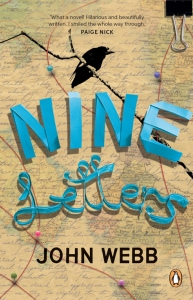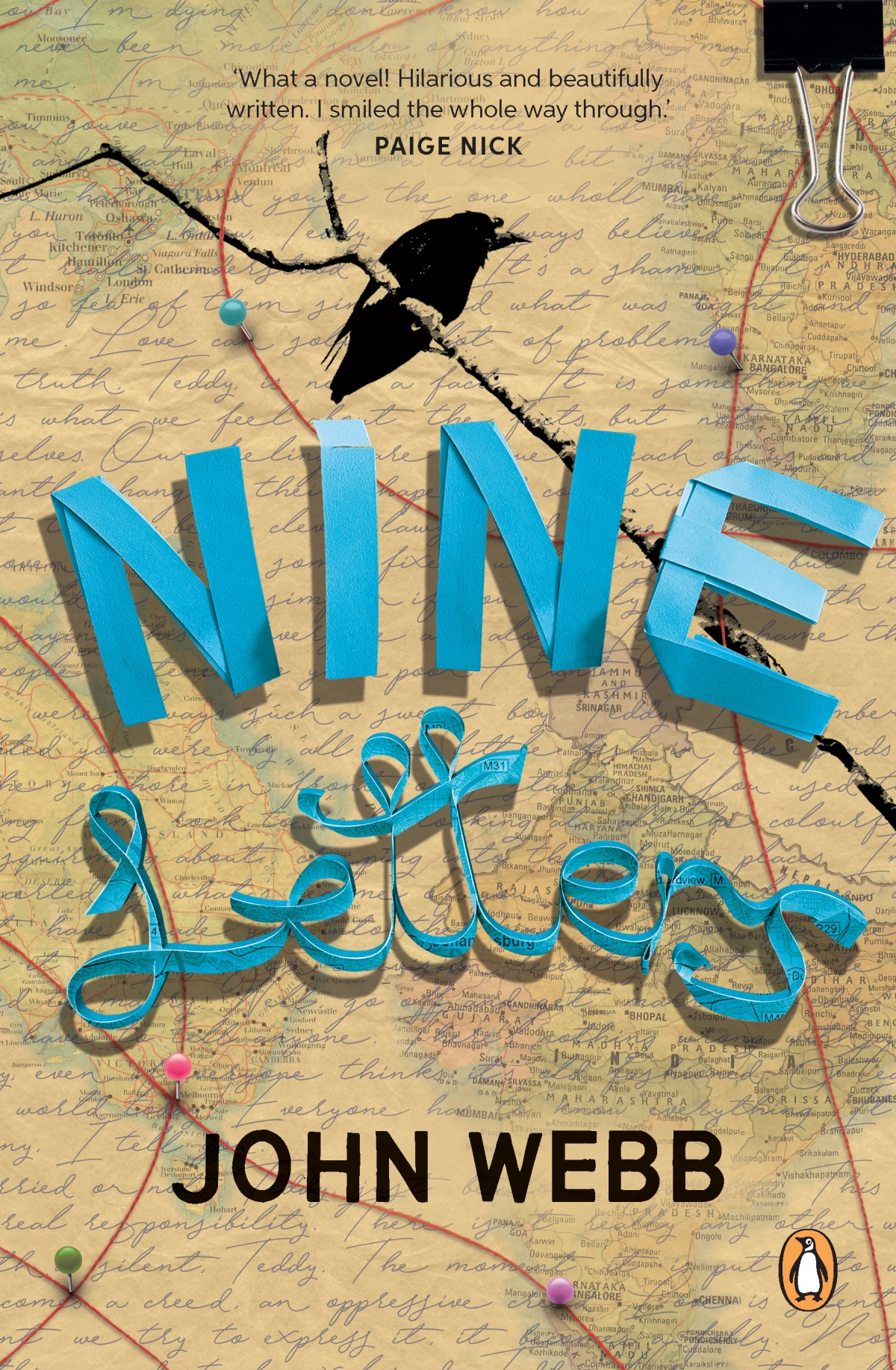
In Nine Letters, cynical lawyer Teddy Dickerson is awaiting a slow decline and a place at an old-age home. But life sometimes brings surprises. When his prickly Aunt Val dies, she leaves an unusual bequest: her task for Teddy is to post letters to eight of her friends around the world, a job that will take him on a journey into new and unexpected territory. We’ve asked John Webb, the author, some questions.
You have a very interesting life – spending time on most of the continents and with friends all over the globe. How do you keep in touch with the people you want to stay in contact with? And why?
I mostly use email to stay in touch. And I’m partial to occasional marathon phone calls. I could kick myself for relying on text messages as much as I do. They are an ideal way to mutilate a perfectly good language. I avoid social media and am convinced that it is the source of a grave and growing mass psychosis. Still, whatever method you choose, it is important to stay in touch with folks you have met along the way. It gives essential context to the life you’re living now.
Can you still remember the first letter you received?
I don’t think so. But when I was at boarding school, letters from home were dished out by the Headmaster at each midday assembly. It was an indescribable thrill to have your name called out because you’d received a letter and it was an indescribable disappointment if it wasn’t!
What are your hobbies?
I’ve had many hobbies over the years and yet I have fastidiously avoided being particularly good at any of them! From photography and videography, to painting, drawing, swimming and even motor-cycling, I still return to writing which is by far my most absorbing pastime of all.
Prejudice and simply not knowing causes a lot of the problems we, as a society, face today. Are you aware of this in your own life? And how do you go about dealing with it?
Prejudice, a reactionary kind of hostility towards others, is the source of a great deal of suffering and I am appalled to recognize it in myself sometimes. I think we all learn to develop a natural suspicion, even fear, of other people and this lies at the root of prejudice. Yet it is a purely personal and often unconscious psychological process. We overcome our innate suspicion by developing consensus. Language, ritual, institutional norms and belief systems are all important cornerstones of social consensus within our communities. And when these communities come into conflict with each other, our natural suspicion of others expresses itself on a collective level as racial or cultural prejudice. The key is not to diminish the distinctions but to recognize that your fear of others is an informative emotional experience. It is not always helpful to act on your emotions, but it is always essential to listen to them. By doing so we discover patterns to our emotional experience and learn, for example, how fear and anger is connected to remorse and guilt, even shame. The patterns are discerned through a process of inner contemplation. You’ll learn very little about yourself by pointing fingers at others.
Writing is a good way to listen to yourself.
Who is/was your favourite older family member (akin to Aunt Val in Nine Letters) and why?
It is impossible for me to choose a favourite, although my father’s aunt does immediately spring to mind. She was dignified, witty, a notoriously bad driver, and distinctly partial to a gin and tonic at lunchtime, and I am still moved by an abiding affection for her. I must also offer an emphatic nod to my grandfather who was an upright, rigorously disciplined man and yet profoundly emotional. He gave me the line: if you want to do something in a hurry, do it slowly. I feel a little ashamed that I’ve not followed his advice more keenly.








